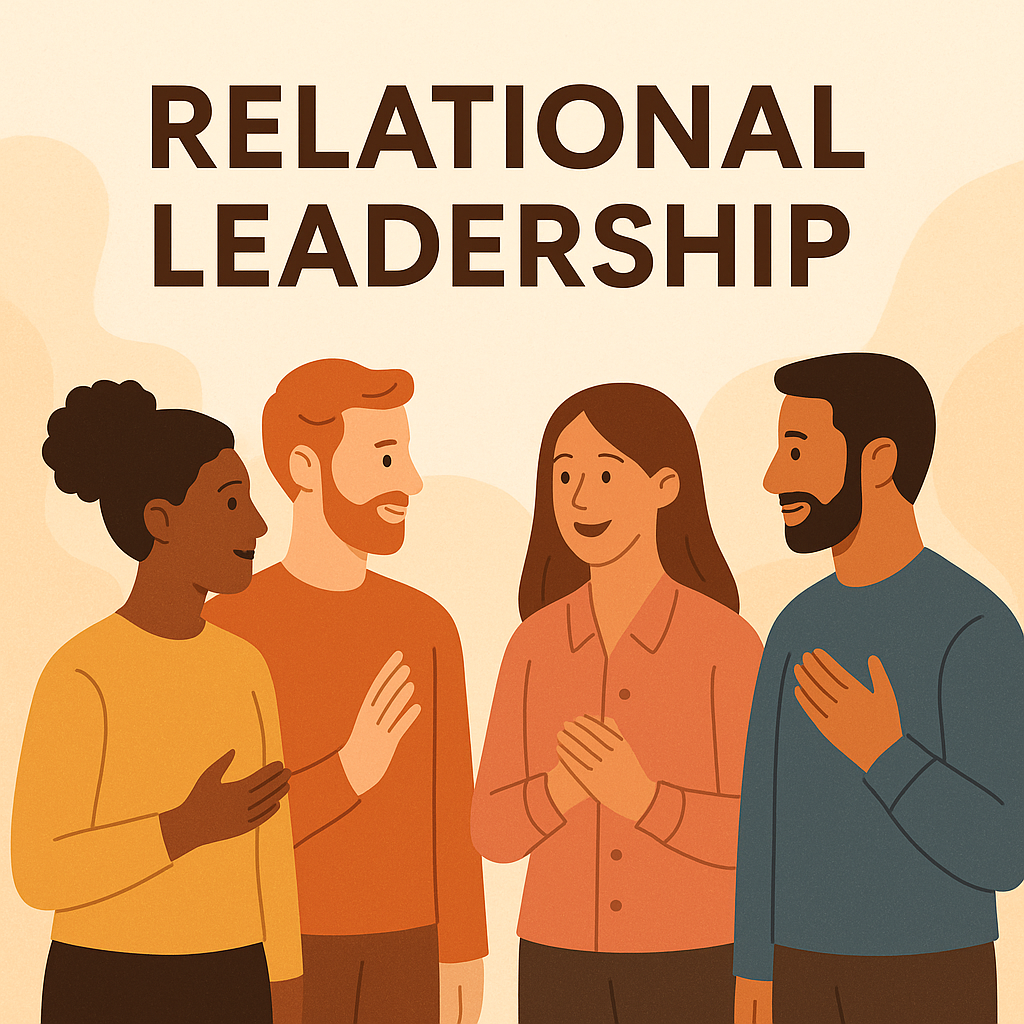RELATIONAL LEADERSHIP
Relationships shape every part of our lives—at work, at home, and in our communities. Yet, many of us move through them on autopilot, reacting rather than intentionally leading.
Relational leadership is about shifting that approach. It’s not about authority or control but about creating an environment where others can thrive—because when they do, so do you.
In this post, we’ll explore what it means to be a relational leader and break down three key skills: communicating with clarity, navigating conflict with curiosity, and offering meaningful support.
Small shifts in these areas can transform the quality of your relationships and, ultimately, your life.
WHAT IS RELATIONAL LEADERSHIP
Relational leadership is the practice of creating conditions for others to thrive.
It’s about using emotional intelligence, relational skills, and intentionality to foster strong, healthy connections.
When we lead in this way, we build trust, reduce misunderstandings, and strengthen our relationships. and here’s the magic: when the people around you do better, so do you.
KEY SKILLS FOR STRONG RELATIONAL LEADERSHIP
- Communicate with clarity
Clear and honest communication is the foundation of any healthy relationship. when you express yourself openly—and listen just as openly—you minimize confusion and build stronger connections.
Action step: before responding in an important conversation, pause and ask yourself, am i being clear, kind, and direct?
- Navigate conflict with curiosity
Conflict is inevitable, but how we handle it makes all the difference. instead of reacting defensively, approach disagreements with curiosity and a desire to understand.
Action step: in your next disagreement, replace judgment with a question: “can you help me understand where you’re coming from?”
- Offer encouragement and support
Relationships thrive on mutual support. being emotionally available and showing appreciation fosters trust and connection.
Action step: this week, make a small but meaningful gesture—send a kind message, check in on a friend, or acknowledge someone’s effort.
PUTTING IT ALL TOGETHER
Relational leadership isn’t about perfection; it’s about intention. Recognizing emotions—yours and others’—and responding in ways that strengthen connection rather than create distance.
As you move through your week, pay attention to how you show up in your relationships. Choose one action step to focus on.
Keep it simple.
Lower the bar.
Celebrate small wins.
Be patient.
These small shifts will lead to deeper, more fulfilling connections over time.
Wishing you a week of intentional connection,
Donald



